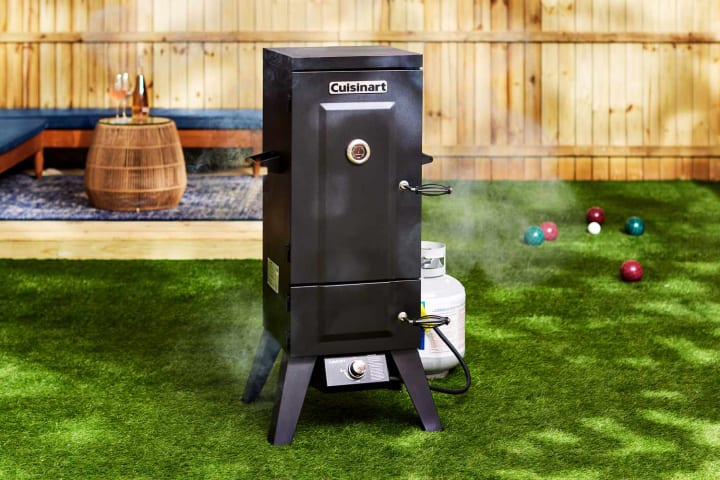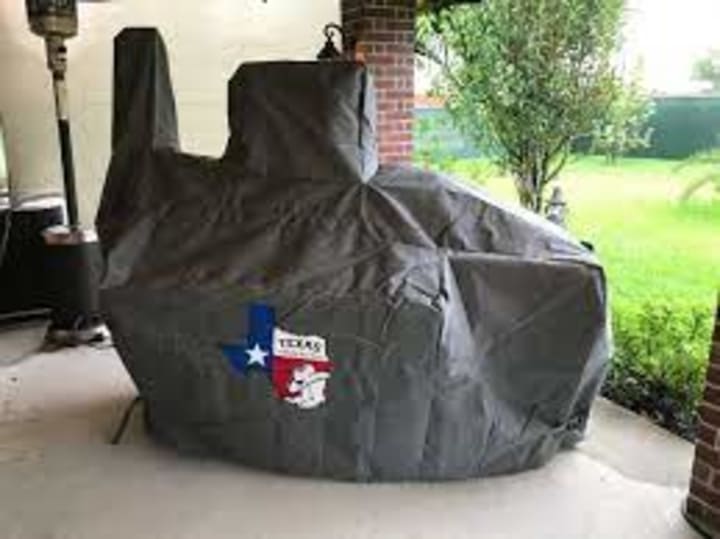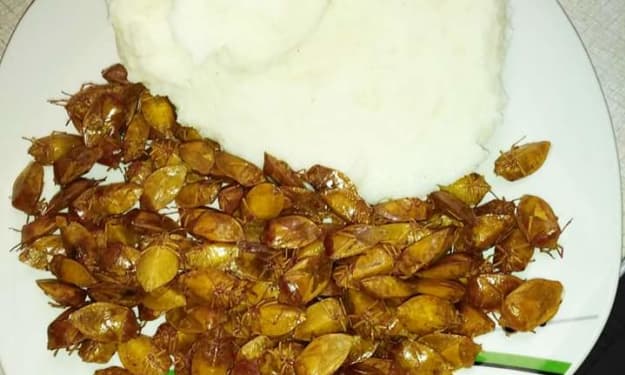
Today marks the start of meat week, and we’ll be looking at one of the most popular preservation methods for it, smoking. The art of smoked meats dates back to the cave dweller times when they accidentally discovered the method when they hung slabs of raw meat next to smokey fires all night. Today, it is hugely popular in the US with clubs, associations, and contests. Professional meat smokers often refer to themselves as Pit Masters. According to them, “All BBQ is smoked, but not a smoked meat is BBQ.” If interested in becoming a Pit Master yourself, here are a few pointers you’ll need to know to buy your first smoker.
Buying A Smoker

You can’t make smoked meats without a smoker. When it comes to buying a smoker, the possibilities are endless. Here are some things you’ll need to figure out before going to the market to buy one. First, figure out how much food you’ll make in it. A good rule of thumb to remember is one pound of meat per person. Almost always, the amount of food you can fit into one is printed on the packaging. Next, you’ll need to know how big you want it to be. Buying a smoker too big for your family not only is a waste of money but could greatly affect your food’s overall taste by reducing its smokey flavor. You’ll need to put it up in the off-season, so size will play an important part here too.
Fuel Type

The next thing to factor in when buying a smoker is what fuel type you want. This is what gives your meat its flavor. There are four main types of fuel you can get for a smoker. You can use a combination charcoal/wood chip model to give it that signature smoked flavor we all love. Electric smokers allow you to balance the temperature better but produce a less rich flavor. Pellet smokers are a more modern take on smokers. This type uses electricity to burn wooden pellets. As a beginner, your best option will be to use a propane smoker. Propane smokers are fast and easy to use, like an electric one, but produce the same taste you get with a charcoal/wood model.
Seasoning Your Smoker

Once you get your smoker home, you’ll need to season it. This will remove any contaminants the factory may have left behind. It also lays the foundation for significant results. Every smoker is different, so today we will only focus on propane smokers. You’ll start by thoroughly cleaning the inside and everything in there with Dawn dish soap and warm water. Once cleaned and rinsed out, coat everything you just washed with canola or grapeseed oil. The only thing you aren’t going to coat in oil is the water pan. Put it back together and let it soak for 5-10 minutes. Finally, set it on the highest setting for 4 hours. When done, the walls should have a dark brown color to it. Let it cool and remove the ashes.
Food For It

Once your smoker is seasoned, it’s time to have some fun. You can put pretty much any type of food in your smoker. For meats look for fatty, tough cuts like ribs, brisket, and shoulder. Fat is where the flavor is, and what is going to keep your meat juicy. Ribs are the best cuts for beginners. Good non-meat options to smoke are peaches, olives, tomatoes, and cheeses, just to name a few. I recently learned that smoking Cheez-Its makes for a good snack. When it comes to rubs, seasonings, and sauces start with your favorites. Over time, you’ll develop your own blends. You should always brine your meat in salt prior to cooking to keep it from drying out.
Using A Smoker

Every smoker has their own rules, so you should take some time to read the manual to familiarize yourself with your chosen model. Again, we will only be looking at propane smokers here. Propane smokers work like a crock pot. They cook low and slow. Some meats take 75 minutes to cook fully, while others, like whole chickens, take all day. Most manuals will have a cook time guide in it, or you can just use Chef Google to help you with this. Before cooking, fill the water pan up to the fill line because moisture is essential for a successful smoke. During the cooking process, you’ll need to resist the temptation to open it, because every 90 seconds the door is open you’ll lose 10 degrees.
Cleaning The Smoker

Too much soot and build-up of grease may affect the taste of your food over time. Which is why it’s a good idea to clean your smoker once a year to prevent this. Start by filling up your water pan like usual. Now run it on the highest setting for two hours. This will loosen the grease. Once cooled down, wrap the heating element in foil and give the inside a good scrub down with a wire brush. Scrub it like you did on the first day you bought it. Scrub the racks and pieces inside of it as well. When finished, rinse the inside and the pieces thoroughly while checking for stray wire bristles. Clean the window panel inside and out. When finished re-season it to maintain good quality food.
Storing Your Smoker

Moisture is great for your food, but it is your smoker’s biggest enemy. Rust and corrosion can happen at any time. Your number one goal when storing your smoker is to keep it dry both inside and out. Direct sunlight can also destroy your smoker. Harmful UV rays can deteriorate the outside, breaking down its structure and destroying its paint. To protect it from this, you’ll need to invest in a good cover. Most companies sell covers designed to fit your specific model. With a propane smoker, you’ll want to disconnect the propane tank from it when you put it away for the season and cover the hose. You’ll want to keep those tanks out of direct sunlight and 10 feet from the house.
About the Creator
M.L. Lewis
Welcome to my little slice of pie. This blog will primarily focus on prepping and homesteading skills with a sprinkle of fiction every now and then.






Comments
There are no comments for this story
Be the first to respond and start the conversation.